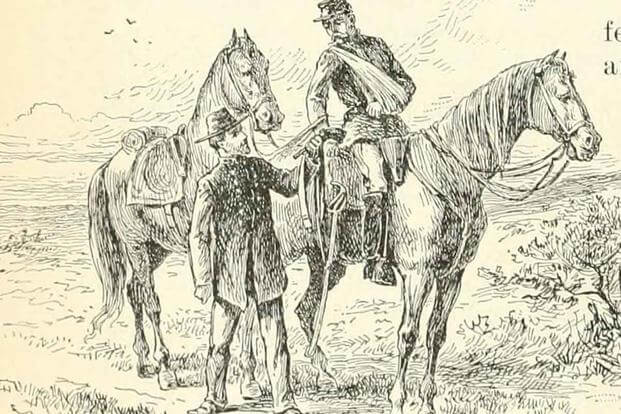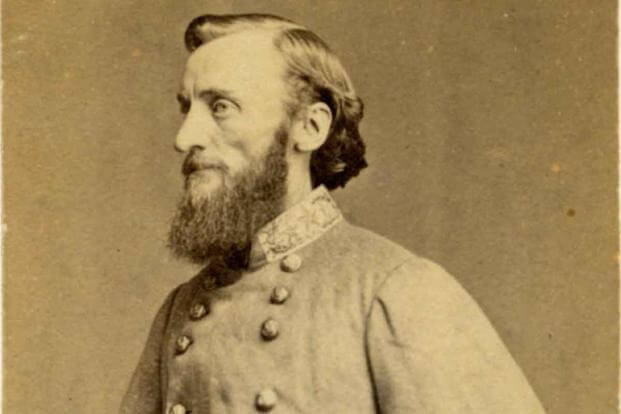The Battle of Gettysburg may have been the turning point of the Civil War, but no one told the Confederates that, especially in the West.
In August 1864, Confederate Maj. Gen. Sterling Price received an order to take the fight to the North, capture St. Louis and make Abraham Lincoln a one-term president.
The resulting offensive was one of the largest mounted cavalry attacks of the war, and it cost the Confederacy dearly. One Union soldier, a 20-year-old private from Iowa, earned the Medal of Honor for compounding the South's failure.

A lot was going against the Confederates from the get-go. They were terribly outnumbered by St. Louis' defenders. To make matters worse, the cavalrymen were still using long, barrel-loaded muskets that were difficult to reload on the best days and nearly impossible on horseback. They were also low on provisions, with three divisions to arm, clothe and feed.
The Confederates began their advance anyway, dead-set on giving Lincoln the October surprise of capturing Missouri and installing a Confederate government. They encountered mixed success, but overran small Union forces at Fort Davidson, Glasgow and Lexington.
Along the way, foraging expeditions resulted in a 500-wagon supply train, including blue Union uniforms that the Confederates happily wore. Their provisioning issues were over, but their real problems were just beginning. And the ill-gotten supplies would be the catalyst for their defeat.
When the Confederate troops arrived at St. Louis, they found it much better defended than they expected, so they headed west toward Jefferson City.
Although their previous battlefield victories were much-needed wins, they slowed the Confederates down and allowed a pursuing Union force under Gens. Samuel R. Curtis and Alfred Pleasonton to catch up to them near Kansas City. At the Battle of Westport, Price's Confederate cavalry was soundly beaten in an engagement that became known as the "Gettysburg of the West."
After Westport, the southerners were forced to retreat through Kansas. Upon arriving at the river crossing near Mine Creek, Confederate troops found their wagon trains hadn't finished crossing. Outnumbering the Union Army by more than 2-to-1, they set up a battle line.
The Union cavalry charged, and the fighting quickly devolved into fierce hand-to-hand combat. When the southern cavalrymen couldn't reload their rifles, they used them as clubs. Soon, Union troops were in the Confederate rear, but the rebel infantry were wearing Union blue, making it difficult to tell friend from foe.
Pvt. James Dunlavy of the 3rd Iowa Cavalry started shooting into a crowd of rebel soldiers wearing the stolen uniforms. Confederate Gen. John S. Marmaduke, thinking the soldiers were federal troops and Dunlavy was one of his men, approached the young man, who put a gun to his chest and forced his surrender.

Within hours, the battle was over -- a lopsided win for the outnumbered Union troops and their superior firepower. The southerners took 10 times the casualties as the attacking Union troops, and Price would later have to destroy the supply wagons at another river crossing to salvage what was left of his army.
The federals chased Price all the way back to Texas; the Confederates never mounted another major offensive in the Mississippi River theater of the war.
Dunlavy received the Medal of Honor for capturing Marmaduke, who spent the rest of the war at a prisoner-of-war camp in Johnson's Island, Ohio.
-- Blake Stilwell can be reached at blake.stilwell@military.com. He can also be found on Twitter @blakestilwell or on Facebook.
Want to Learn More About Military Life?
Whether you're thinking of joining the military, looking for post-military careers or keeping up with military life and benefits, Military.com has you covered. Subscribe to Military.com to have military news, updates and resources delivered directly to your inbox.















